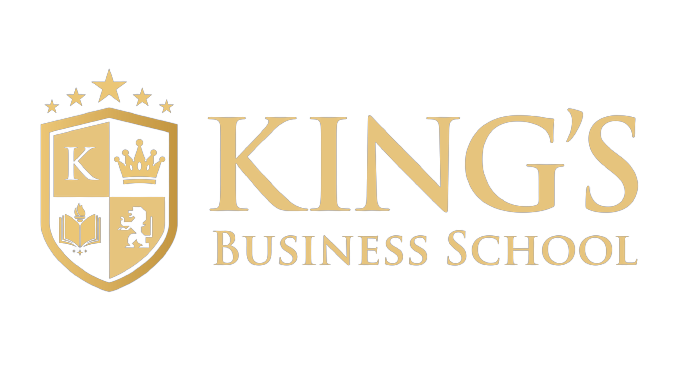Are you looking forward to pursuing a Doctorate in Business Administration? Before diving into the world of doctoral studies, it’s essential to evaluate the Return on Investment (ROI).
At King’s Business School, where we offer a Doctorate of Business Administration (DBA) program, we understand the significance of this decision and aim to provide you with insights to help you make an informed choice.
The Investment Beyond Tuition
Earning a DBA brings the promise of advanced management and administrative roles, but it’s crucial to consider the full scope of costs involved.
While the potential salary increase is tempting, several factors impact the ROI of a doctoral degree:
1. Net Price and Debt:
One key factor to weigh is the net price of the program, taking into account any scholarships or financial aid available. A DBA can be a significant investment, so understanding your financial options is crucial for managing potential debt after graduation.
2. Time Until Graduation:
DBA programs typically take 3-4 years to complete. During this time, you may miss out on potential income opportunities. It’s essential to assess how your income might change during your studies and plan accordingly.
3. Career Prospects:
Beyond academia, a DBA opens doors to a variety of career prospects. Graduates can teach at colleges and universities, with a projected 12% increase in postsecondary business teaching positions from 2019-2029, according to the U.S. Bureau of Labor Statistics.
In addition to the net cost of attendance, the ROI for a Doctorate in Business can be influenced by several other critical factors:
1. Lost Wages: For individuals leaving the workforce to pursue their doctoral studies, it’s essential to account for the lost wages during the program’s duration. This can be particularly challenging for those with financial responsibilities like mortgages, existing student debt, or dependents.
2. Likelihood of Matriculating: The doctoral application process can be time-consuming and costly. It’s crucial to ensure you’ve been accepted into a program that aligns with your goals and is realistically achievable before making significant life changes.
3. Student Loans: If you need to take out loans to finance your education, careful planning is vital. You must secure a post-graduation salary that enables you to comfortably repay these loans. A general rule of thumb is to avoid borrowing more than your expected annual postdoctoral salary.
4. Lost Investment Opportunities: While education is an investment in your future, it comes at a significant cost. This may limit your ability to invest in other opportunities, such as real estate, retirement funds, stocks, or bonds during your years of study.
5. Economic Conditions: The job market and economic conditions can have a substantial impact on your ROI. While the Bureau of Labor Statistics (BLS) projects positive job growth in many business careers, there are no guarantees of obtaining a professorship or immediate salary increase after graduation. It’s important to stay informed about economic trends and job prospects in your chosen field.
6. Intangible Factors: It’s essential to consider the intangible benefits of education. Beyond financial returns, earning a doctorate can provide you with industry knowledge, new skills, and valuable networking opportunities. However, you must also account for potential stressors like balancing work, school, and personal life, as well as the risk of burnout, which may affect your overall investment.
Evaluating these considerations alongside the net cost of attendance will help you make a well-informed decision about pursuing a Doctorate in Business and assessing its potential return on investment.
The Doctorate in Business Administration Degree: A Closer Look at the Degree with King’s Business School
The Doctorate of Business Administration (DBA) program at King’s Business School offers an experiential and practice-based approach that is ideal for both seasoned professionals and recent master’s degree graduates.
Within this program, students immerse themselves in research at a doctoral level. They would be addressing contemporary business challenges and staying updated on global management trends.
The program equips students with a robust set of proven business research tools. The course’s excellence is further amplified by our distinguished teaching faculty, who bring a wealth of industrial knowledge and world-class experience to the classroom.
Their expertise ensures that students graduate with a comprehensive understanding that empowers them to identify and address recurring industry challenges. Graduates of the DBA program are highly sought-after for top management roles and have the potential to excel in industries, administration, and academia.
Comparing DBA and Ph.D. in Business Programs
| Doctorate of Business Administration | Ph.D. in Business and Management | |
| Length | 2-4 years | 4-6 years |
| Focus | Application of theory to the business world | Contribution to research and education in business studies |
| Goal | Advanced management and administrative roles | Education, publication, and professorship roles |
| Annual Cost | $20,000-$60,000 | $20,000-$60,000 |
| Prerequisites | Master of business degree and/or demonstrable work experience at the managerial level | Master of business degree |
| Student Demographics | MBA graduates and senior business professionals | Graduates from related master of business programs |
| Curriculum | Methodology, management theory, development of research projects, dissertation, and final defence | Methodology, management theory, development of research projects, dissertation, and final defence |
| Program Focus | Address current business problems, focus on practical solutions, develop new business models | Develop new theory, seek to answer business questions, bridge gaps of understanding, write for the purpose of publishing |
| Dissertation | Generate a theoretical model that can be applied to the business world to solve problems or address specific needs | Conduct research on business theory and seek to publish new findings and understandings |
Resource: https://www.topmanagementdegrees.com/doctorate-business-roi/
Modules
- Research Design & Literature Review
- Entrepreneurship and Innovation
- Global Management Trends
- Advanced Management (Elective Pathway)
- Research Proposal
- Doctoral Thesis
Career Prospects
A Doctor of Business (DBA) degree opens doors to a wide range of lucrative career opportunities. While the business world can be highly competitive, advanced degrees and substantial work experience empower individuals to secure prestigious titles and enjoy higher salaries Here are some career options for DBA graduates:
1. Postsecondary Business Teachers:
DBA holders can pursue careers in academia, teaching business courses at colleges and universities. This role allows them to share their knowledge, engage in research, and contribute to the education of future business professionals.
2. Financial Manager:
DBA graduates are well-equipped to excel in financial management positions. They can take on roles such as Chief Financial Officer (CFO) or Finance Director, where they oversee financial strategies, risk management, and crucial financial decision-making.
3. Top Executive:
DBA professionals are often groomed for leadership roles within organisations. They can attain top executive positions, including CEO or President, where they play a pivotal role in shaping an organisation’s direction and making critical decisions.
4. Management Analyst:
As a management analyst, you’ll analyse an organisation’s operations and provide recommendations for improvement in areas such as efficiency, productivity, and cost-effectiveness.
5. Market Research Analyst:
In this role, you’ll gather and analyse data to help businesses make informed decisions about their products, services, and target markets.
6. Policy Analyst:
Policy analysts work in various sectors, including government and non-profit organisations, to evaluate and develop policies that address complex issues.
7. Quantitative Analyst:
Quantitative analysts, often referred to as “Quants,” use mathematical and statistical models to inform investment and financial decisions in industries like finance and insurance.
8. C-level Executive:
A DBA can lead to executive positions such as Chief Executive Officer (CEO), Chief Financial Officer (CFO), or Chief Operations Officer (COO) in organisations, where you’ll have a strategic leadership role.
9. Economist:
Economists study economic trends and data to provide insights into economic conditions, helping governments, businesses, and organisations make informed decisions.
10. University Lecturer:
With a DBA, you can pursue a career in academia, teaching business and management courses at universities and colleges.
11. Management Consultant:
Management consultants provide expertise in solving complex business problems, improving operations, and enhancing profitability for clients in various industries.
12. Strategic Manager:
Strategic managers oversee an organisation’s strategic planning process, helping set long-term goals, objectives, and strategies for success.
13. Business Development Manager:
Business development managers identify growth opportunities, establish strategic partnerships, and expand market reach for their organisations.
To know more about our Doctorate In Business Administration Program, click here





